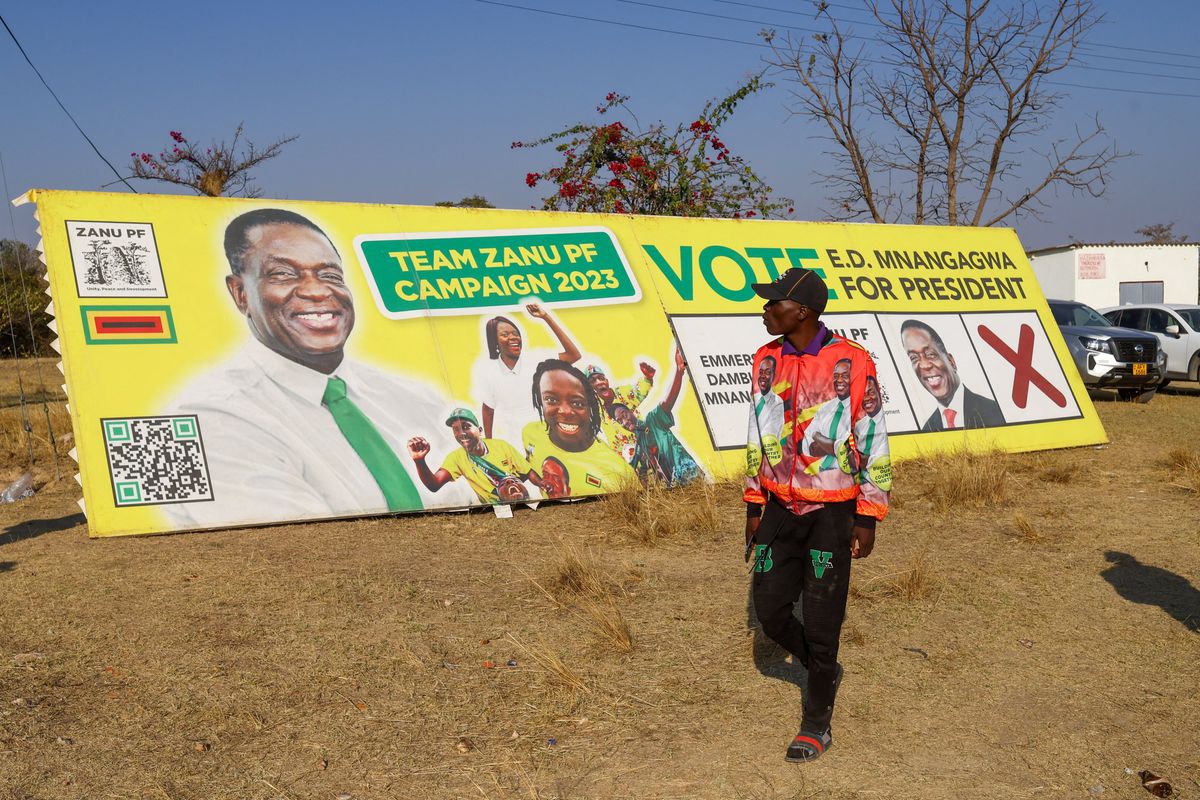Zimbabweans are heading to the polls today, but few voters are feeling enthusiastic about the direction of their country. It’s only the second time that Zimbabwe is holding a vote since the ousting of longtime despot Robert Mugabe in 2017, but hopes that the southern African country of 15 million could undergo a democratic rebirth have largely dissipated.
Some quick background. Zimbabwe, a British colony until gaining independence in 1980, was ruled by liberation fighter-turned-autocrat Robert Mugabe until he was overthrown in a coup in 2017. At the time, most Zimbabweans rejoiced, hoping for a new dawn of economic growth and opportunity after years of corruption and oppression under the Mugabe regime.
But since then, Emmerson Mnangagwa, 80, Mugabe’s former deputy known as "the crocodile" due to his ruthlessness, has forced himself on the Zimbabwean people, coming to power in 2018 in an election broadly seen as a sham. Mnangagwa, a former guerilla fighter, was sentenced to death during white Colonial rule, but was ultimately able to escape that fate, serving a 10-year prison term instead, because he was under the age of 21. It was in prison that Mnangagwa and Mugabe met.
Most analysts say there’s no chance that today’s vote will be free or fair. Indeed, authorities have shut down recent rallies led by the Citizens Coalition for Change, the main opposition party led by Nelson Chamisa, 45, and arrested its supporters. Internet connections have also been slashed, limiting voters' access to key information.
The situation could not be more dire for the southern African state, where unemployment is pervasive, inflation is in the triple digits, and, according to some estimates, 90% of workers toil in the informal economy due to a dearth of investment and jobs. Zimbabwe is resource-rich, but decades of corruption, mismanagement, and underinvestment have meant that ordinary people have not benefited from mineral exports.
Crucially, Zimbabwe’s healthcare system is in tatters, and the government has stonewalled doctors and nurses from leaving the country in pursuit of higher salaries.
Outsiders are watching. Back in 2018, Mnangagwa used the military to quash dissent, resulting in at least six deaths. The US and EU have imposed sanctions on Zimbabwean individuals and entities as a result of the regime’s gross human rights abuses – and will be watching closely to see if there are more post-election clampdowns. And then there’s China, a major stakeholder in the Zimbabwean economy that has also helped transform it into a mini surveillance state.



















